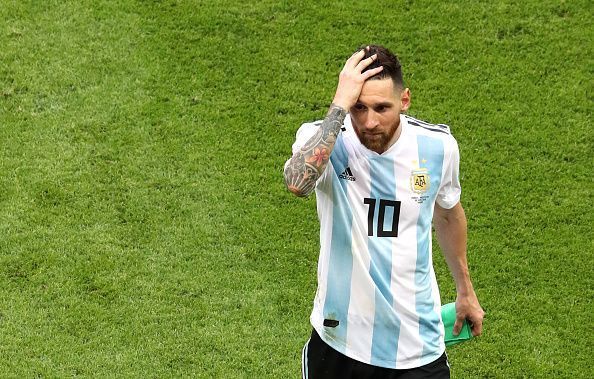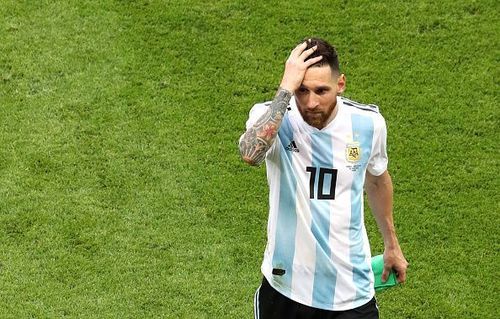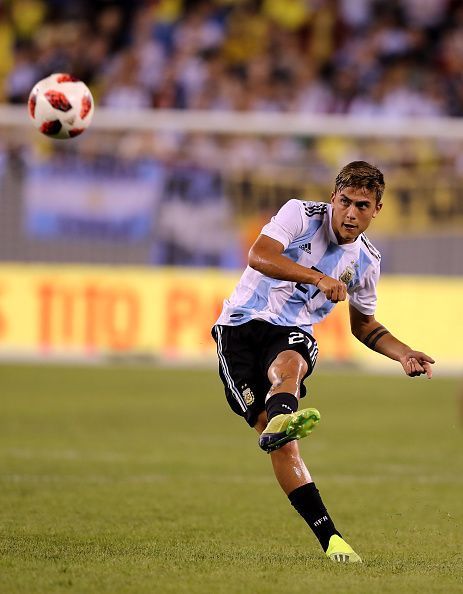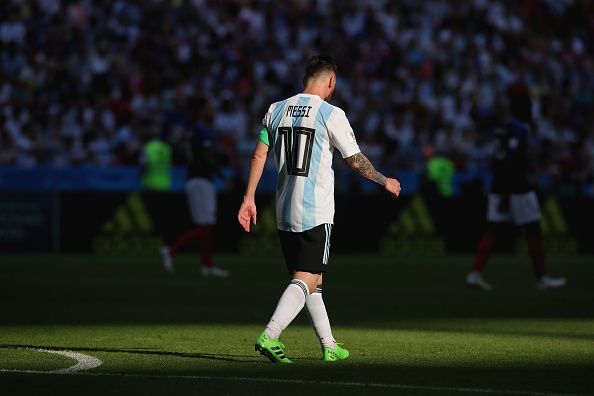
Why Lionel Messi’s Absence Bodes Well For Argentina

"There is only one answer for your question: Every player who was in the World Cup kept his number, the ones who came here.
"In this time, the 10 shirt belongs to Messi, and it will stay this way until he decides if he will continue with us or not.
"We aren't closed to that chance so I chose to keep this number for him. In the future we will see, but if you look at the players who played the World Cup you will see they kept their numbers, and we wait for the future to see what happens, but so far no one is using the 10 because it is exclusive for him and that is my decision. There is nothing else about this."
Ahead of the friendly match vs Colombia, Lionel Scaloni, Argentina’s interim manager talked to reporters about the decision to reserve the no. 10 shirt in Lionel Messi’s absence.
At the 2018 World Cup in Russia, Argentina was a complete shadow of the team that cruised to the final four years earlier; but the real disappointment, on a larger scale, was Messi’s inability to inspire La Albiceleste as much as he had done in the final fixture of the World Cup qualifying round.
Every athlete needs an occasional escape from all the madness in sport and there is none more deserving than Lionel Messi, who’s become the most burdened Argentine in the world’s game, hence, his decision to step aside from the National team for the rest of 2018, to see how well things develop before taking his final stand on retirement.
When the Barcelona ace announced his retirement following the 2016 Copa Centenario heartbreak to Chile, a mass appeal followed. This time, however, there’s very little at stake, and Messi’s absence could prove to be a blessing in disguise.
First, Argentina has the opportunity to, without hurried trial and error, prepare the current group for life without Messi, but more importantly, lay out the path for an alternative talisman -albeit less glorified- to take the reins as the older generation gradually phases out.

The likes of Paulo Dybala, Giovanni Simeone, Angel Correa, Mauro Icardi and Lautaro Martinez will have the opportunity to do their talking on the pitch, but perhaps, it is Dybala who possesses the requisite skill set to step into the enormous role of Argentina's new talisman.
The Juventus ace struggled for minutes at the World Cup and has yet to become a key cog in Albiceleste's wheel, but in the absence of La Pulga, Dybala's magnificent creativity, if well maximized, could see him usher Argentina into a bright and hopeful future.
Argentina has often been accused of failing to take advantage of the talent pool at its disposal, but unlike Spain and Germany –whose success on the big stage is a function of wholly integrated youth infrastructures – La Albiceleste’s greatest undoing has been ignoring the very system that produced the likes of Messi, Mascherano, Zabaleta, Aguero and Goalkeeper Sergio Romero; the Argentine National team was the oldest squad at the 2018 World Cup.
As old legs tire and the need for transition arises, the South Americans will do well to trust their youth again. France and England had some of the youngest squads in Russia; this was a bold move by the respective national team coaches, and although the "youth recipe" doesn't always guarantee success - as was the case with Nigeria - the rewards often outweigh the risks in the long term.
More importantly, Argentina have the opportunity to build a unit designed to function without a key talisman – Germany, Chile, Belgium, Uruguay – such that the absence of one is hardly noticed and each player plays with the conviction that success is achieved when the group functions effectively as a well-knit unit. Even when Los Albiceleste reached the World Cup final in 2014, there was still this predominant feeling that one man was central to the team's fortunes.
Not every national hero is blessed with a happy ending – Cafu and Lahm both bowed out triumphantly on the big stage, whilst Zidane had the ugliest of grand finales. While Argentina will want to maximise Messi's genius, the ultimate priority should be succeeding without him in the picture; it's not a matter of if, it's a matter of when, and it will always come to that point where they have to do it without El Major.

While Lionel Messi enjoys his deserved break, The onus is on the Argentine Football Federation to put its house in order ahead of the 2019 Copa America and 2022 World Cup in Qatar, and as it stands, the priority, in a nutshell, remains hiring a manager capable of moulding Albiceleste's talent pool into a cohesive unit, such that if Messi chooses to return, it will be a bonus, not a lifeline.